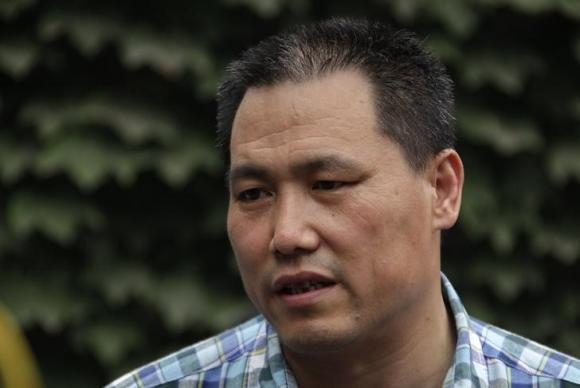The New York Times’ Edward Wong highlights growing use of “picking quarrels and provoking trouble” charges under Xi Jinping:
An oil-field worker in this Gobi Desert town posted poetry online memorializing the victims of the Tiananmen Square crackdown. An artist in Shanghai uploaded satirical photographs of his wincing visage superimposed on a portrait of the Chinese president. A civil rights lawyer in Beijing wrote microblog posts criticizing the Communist Party’s handling of ethnic tensions.
In each case, the men were detained under a broad new interpretation of an established law that the Chinese authorities are using to carry out the biggest crackdown on Internet speech in many years.
[…] “The core of rule of law is that the government shall be restricted by law,” said Zhang Qianfan, a law professor at Peking University. “But now it is using the law to punish whoever criticizes it or has some influence in the public realm.”
[…] The legal definition of “picking quarrels” was expanded in late 2013 by the nation’s top legal bodies, the Supreme People’s Court and the Supreme People’s Procuratorate, to encompass online behavior. The court said the charge could apply to anyone using information networks to “berate or intimidate others” and spread false information. First-time offenders can be sentenced up to five years in prison. [Source]
Last year, a Dui Hua Foundation study found a 40% drop in state security charges such as inciting subversion since 2008, as less politically loaded public order charges like “picking quarrels” became more prevalent.
Those who have been suspected or charged with the latter include feminist activists Wu Rongrong, Zheng Churan, Wei Tingting, Wang Man and Li Tingting; rights lawyers Xu Zhiyong and Pu Zhiqiang; the late rights activist Cao Shunli; Wang Aizhong and others who held protests and meetings ahead of the 25th anniversary of the June 4th crackdown last year; scholar and accomplice in Chen Guangcheng’s escape, Guo Yushan; activist Wu Gan and likely others subsequently detained in the recent “Black Friday” crackdown on rights lawyers; Beijing web editor Zhou Mu, who posted a photoshopped image linking Mao Zedong to the Almighty God sect whose members killed a woman in a Shandong McDonald’s; a Uyghur man who reportedly refused to shave his beard; and several “wild imams” in Xinjiang.
At The Times’ Sinosphere blog, Adam Wu interviewed Chongqing University law professor Chen Zhonglin about the charge. Chen defended some aspects of the law, but noted several potential problems, particularly with its application to online speech:
First, the suspects must be aware that the information they are disseminating is false. Second, the dissemination must have jeopardized social order.
Here I think “social order” means actual order. How can falsehoods or rumors affect order on the Internet, when this is just virtual reality? So it should mean the rumors or falsehoods you’re deliberately spreading online actually cause social turmoil, or serious injury to individuals. Then you should be prosecuted.
However, if law enforcers ignore reality and instead charge people with “picking quarrels” on the basis of how many times their comments have been reposted, that is absolutely wrong.
When dealing with routine cases of “picking quarrels and provoking trouble,” the first resort should be the Public Security Administration Punishments Law. This stipulates that people who brawl, chase or intercept others, forcefully take things from others or deliberately damage or appropriate public or private property and engage in other forms of picking quarrels and provoking trouble can be detained for five to 10 days and fined up to 500 renminbi. In aggravated circumstances, they can be detained for 10 to 15 days and fined up to 1,000 renminbi.
When a suspect can be dealt with under the Public Security Administration Punishments Law, or even without judicial measures, it is absolutely wrong to apply Criminal Law and throw him or her into jail. [Source]
Read more on the charge from Jeremy Daum at China Law Translate.







